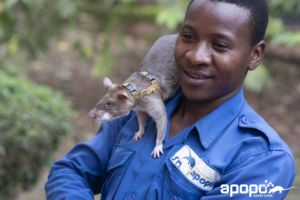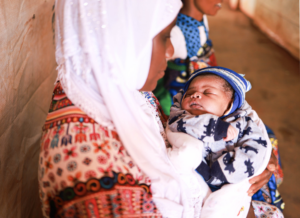Vedastina Shumbusho received the Women in Global Health Africa Award for her 3 am digital report that helped contain a deadly Marburg outbreak in rural Tanzania.

When Vedastina Shumbusho filed a health alert at 3:00 am on March 16, 2023, she may have prevented a regional health crisis. The 37-year-old community health worker from Tanzania’s Bukoba District had noticed unusual deaths in her community, with symptoms including fever, weakness, and internal bleeding.
Her timely report through Tanzania’s electronic event-based surveillance system triggered immediate action from health authorities. Laboratory testing confirmed Marburg virus, a hemorrhagic fever with up to 88 percent fatality rates. The outbreak lasted from March to June 2023, resulting in nine cases and six deaths before being declared over.

For her quick recognition of a serious situation, Shumbusho received the Women in Global Health Africa Award for her intervention, which was given in March 2025 at the Africa Health Agenda International Conference, hosted by Amref in Kigali, Rwanda.
The outbreak began when a 30-year-old man died at a local dispensary, followed by deaths among relatives and a healthcare worker. Information spread through community networks and a WhatsApp group for health workers, where it reached Shumbusho.
Trained in 2021 under a program by Amref Health Africa and Tanzania’s Ministry of Health with US CDC support, she was among 250 community health workers equipped to identify health threats using smartphone-based reporting.

“We are the eyes and ears of our communities,” Shumbusho told delegates at the conference. “If we ignore what we hear today, we may lose thousands tomorrow.”
Her effectiveness stemmed from community trust built through years of home visits and cultural understanding. “In our community, people speak in codes,” she said. “But because they trust me, they speak. And when they speak, I listen not just with my ears, but with what I know.”
The response involved deploying a Rapid Response Task Force and isolation measures that contained the outbreak to Bukoba District. The electronic surveillance system has since trained over 500 community health workers across Tanzania.
“Vedastina’s case is proof that with the right tools, local knowledge becomes national intelligence,” said Lusungu Ngailo, Project Manager at Amref Tanzania.
Shumbusho continues her regular duties in her village, monitoring community health for early warning signs. Her story now influences surveillance systems across East Africa and has been incorporated into national health training programs.
Watch this video about Ms. Shumbusho:
This summary was based on the following articles:
- Heroes Don’t Always Wear Capes – Some Carry Clipboards and Courage, from Amref Health Africa
- From Village Alert to Global Recognition: A Community Health Worker (CHWs) Courageous Fight Against Marburg, from Amref Tanzania
- How Tanzanian helped stop Marburg in its tracks, by Elkana Kuhenga for the Daily News (Tanzania)
Related Articles

Tanzania’s Newly Trained ‘Army’ of Community Health Workers
The country aims to train and equip nearly 140,000 frontliners by 2028, in what leaders hope represents a transformative shift for healthcare at the grassroots. From Gavi, the Vaccine Alliance.

Giant Rats and Dedicated Volunteers Transform TB Detection in Tanzania
In Tanzania, Apopo’s trained rats screen thousands for tuberculosis at a fraction of standard costs, often detecting TB before clinical tests, while Mkuta’s volunteers ensure patients receive treatment and support in their communities.

Maternal Health Care Achievement in Tanzania: Zero Maternal Deaths in Four Years
Through antenatal care, skilled deliveries, and community health workers, Medical Teams International has achieved four years of zero maternal deaths in Tanzanian refugee camps, offering a model for other countries.
